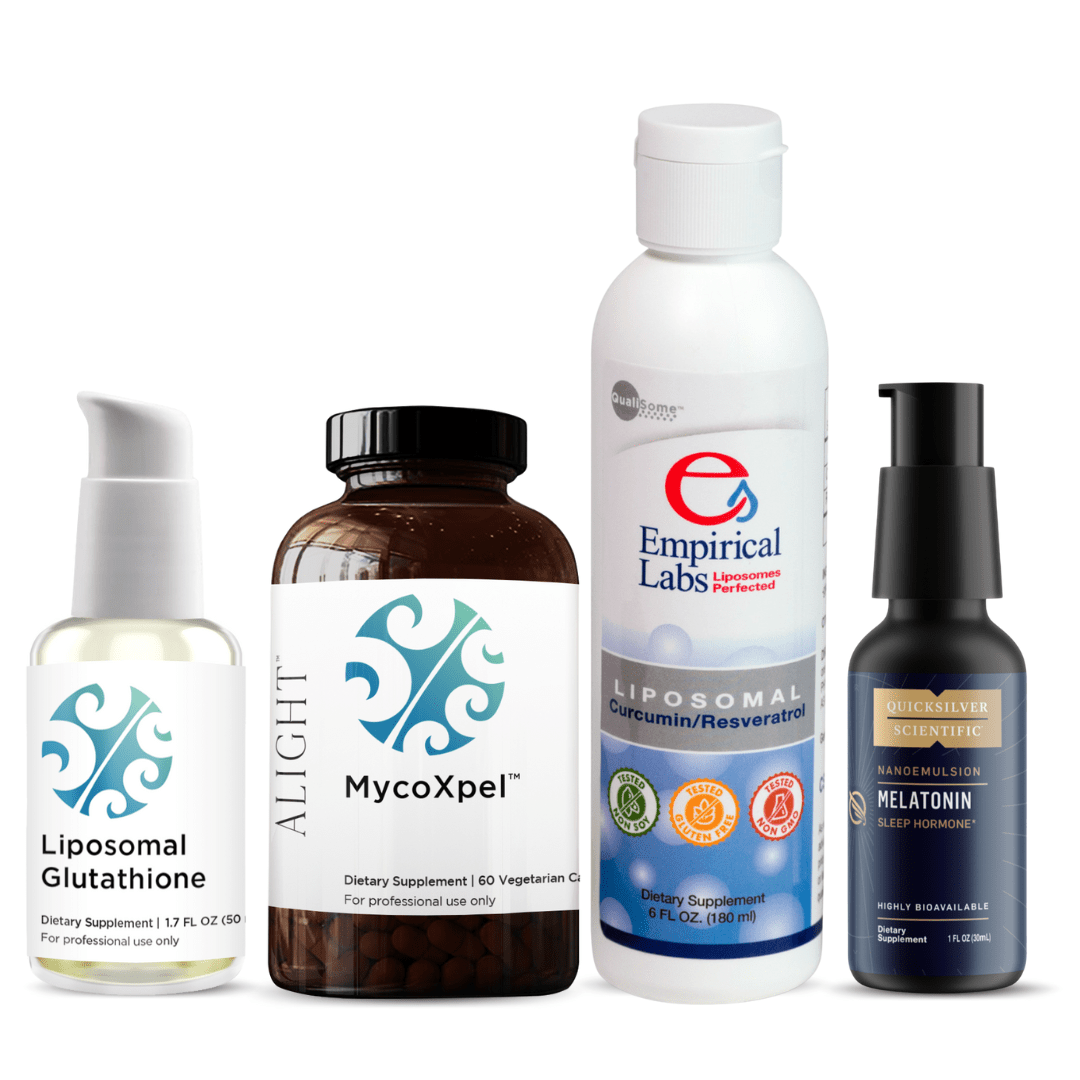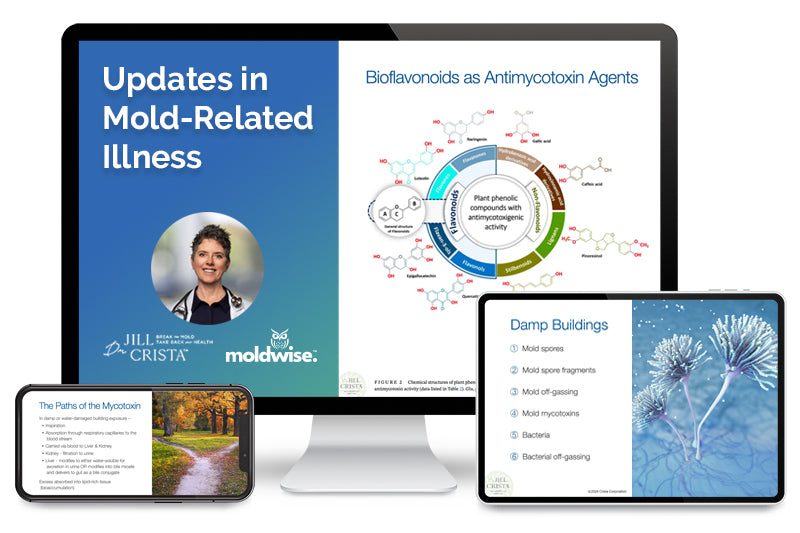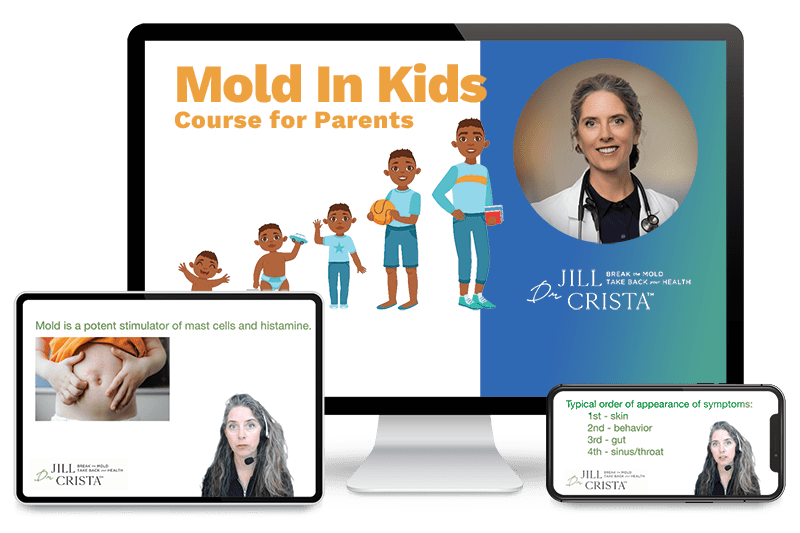
Aflatoxin
When we think of Aflatoxin, we think primarily of the liver. This mycotoxin and its metabolites cause liver injury, with possible complications including hepatitis, cirrhosis, and liver cancer.
The toxin-clearing burden is also shared with the kidneys.
Aflatoxin’s additional health impacts include the immune system, gut flora, brain barrier function, and pregnancy.
Aflatoxin reduces our defenses. Against viruses, Aflatoxin may lead to increased susceptibility to respiratory viral infections and spur chronic viral infections, such as Epstein-Barr virus. It promotes viral replication and inflammation, which affects the tender air sacs in the lungs called alveoli.
The alterations to the gut flora are accompanied with an increase in gut pathogens, such as toxin-producing E.Coli.
Aflatoxin is linked to birth defects and may increase the risk for anemia in pregnancy and premature birth. It’s been correlated to stunted growth in children.

Aflatoxin Bundle & Save
Buy Now
Signs & Symptoms
- Dark urine
- Fatigue
- Insomnia
- Anemia
- Progressive inflammation
- Accelerated aging
- Reduced immunity
- Brain fog
- Cognitive decline
- Incoordination
- Headache
- Visual fatigue
- Chronic sinusitis
- Liver pain or fullness
- Loss of appetite
- Nausea, vomiting
- Dysbiosis
- Jaundice
- Hepatocellular carcinoma
- Chemical sensitivity
- Toxic metal accumulation
- Steroidal hormone imbalance
- Miscarriage or preterm birth
- Stunted growth in children
Group I Carcinogen
This mycotoxin is the most potent liver carcinogen recognized in mammals and is listed as a Group I carcinogen by the International Agency for Research on Cancer. Aflatoxin’s propensity to reduce defenses against viruses may explain its association with virally-induced carcinomas.
Download the Aflatoxin Fact Sheet for Patients

Aflatoxin Q&A with Dr. Crista

Medical Practitioner Technical Sheet
The Aflatoxin Tech Sheet for Practitioners is included in the Updates in Mold-Related Illness course materials




